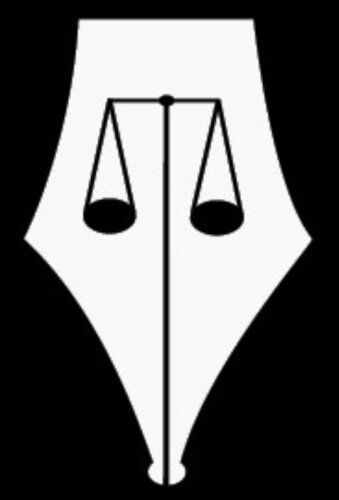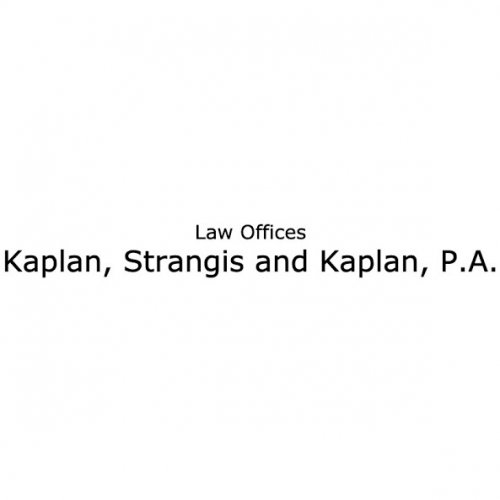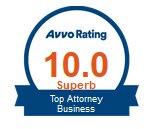Best Accounting & Auditing Lawyers in Minnesota
Share your needs with us, get contacted by law firms.
Free. Takes 2 min.
Or refine your search by selecting a city:
List of the best lawyers in Minnesota, United States
About Accounting & Auditing Law in Minnesota, United States
Accounting and auditing form the backbone of financial transparency and compliance in Minnesota. These practices ensure that individuals, businesses, nonprofits, and government entities adhere to established financial standards and regulations. Laws governing accounting and auditing in Minnesota outline the requirements for practicing certified public accountants (CPAs), the duties of preparers of public financial documents, and the standards applied in financial auditing. Whether relating to taxes, business operations, or governmental oversight, these laws help maintain the integrity of financial information and promote confidence in the state's financial ecosystem.
Why You May Need a Lawyer
Legal issues can arise at many points in accounting and auditing. Here are some common scenarios where legal help may be essential:
- Navigating complex state and federal tax regulations for personal or business finances
- Responding to audits by the Internal Revenue Service (IRS) or the Minnesota Department of Revenue
- Addressing allegations of accounting malpractice, fraud, or misrepresentation
- Resolving disputes between business partners or shareholders over financial statements
- Ensuring compliance with industry-specific accounting standards and regulations
- Dealing with penalties or legal action resulting from inaccurate or incomplete audits
- Understanding fiduciary duties for financial officers or nonprofit board members
- Managing legal aspects of mergers, acquisitions, or business dissolutions
- Assisting with licensing or disciplinary matters involving CPAs or accounting firms
Seeking legal counsel can help protect your interests, clarify responsibilities, and resolve disputes effectively.
Local Laws Overview
Minnesota enforces robust regulations surrounding accounting and auditing, tailored to both protect public interests and support business integrity. Some key local legal aspects include:
- CPA Licensing: The Minnesota Board of Accountancy oversees the licensure and regulation of CPAs. Only individuals or firms with an active license may use the title and perform certain services for the public.
- Statutory Requirements: State law outlines the responsibilities and ethical standards expected of accountants, including requirements for continuing education, peer review, and adherence to generally accepted accounting principles (GAAP).
- Audit Requirements: Certain entities, such as publicly traded companies, nonprofits, and government bodies, are required by law to undergo periodic financial audits performed by regulated professionals.
- Record-Keeping: State law specifies minimum periods for maintaining financial records and the types of documents required for compliance.
- Disciplinary Actions: The Minnesota Board of Accountancy investigates complaints involving professional misconduct, fraud, or ethical violations, with penalties ranging from fines to license suspension or revocation.
- Sales Tax and State Revenue: Businesses must comply with Minnesota-specific sales tax reporting and may be subject to state-level audits for compliance assurance.
Noncompliance with these regulations can result in serious legal consequences, emphasizing the importance of staying informed and seeking expert guidance when necessary.
Frequently Asked Questions
What is the role of a CPA in Minnesota?
A CPA in Minnesota is a licensed professional who can prepare and audit financial statements, provide tax advice, and offer various accounting services in compliance with state and federal regulations.
When is an audit legally required in Minnesota?
Audits are generally required for governmental entities, publicly traded companies, and some nonprofit organizations based on their size, type, or funding sources. Private businesses may also be required to undergo audits due to loan agreements, investor requirements, or regulatory reasons.
How do I verify if an accountant is properly licensed in Minnesota?
You can check the status of an accountant or accounting firm by searching the Minnesota Board of Accountancy's public database, which lists licensed and disciplined professionals.
What are common reasons for a state or IRS audit?
Common audit triggers include reporting inconsistencies, high deductions, unexplained income sources, errors in filed returns, failing to report all income, or random selection.
What should I do if I receive an audit notice?
Respond to the notice promptly, gather your financial records, and consider consulting a lawyer or accountant experienced with audits to guide you through the process and protect your interests.
What are the penalties for noncompliance with accounting laws in Minnesota?
Penalties can include fines, loss of license, criminal charges, or even imprisonment in severe cases such as fraud. Civil penalties and damages may also apply in certain circumstances.
Can a lawyer help with tax disputes in Minnesota?
Yes, a lawyer can represent you in disputes with the IRS or the Minnesota Department of Revenue, assist with appeals, negotiate settlements, and provide guidance on complex tax matters.
How long should I keep financial records in Minnesota?
Generally, you should keep tax and financial records for at least seven years, although requirements may vary depending on the type of records and the entity involved.
What is accounting malpractice?
Accounting malpractice is a breach of duty by an accountant that results in financial harm, such as negligence, misrepresentation, or failure to follow professional standards.
What steps should I take if I suspect fraud in my organization?
Document your concerns, preserve relevant evidence, and consult with an attorney who can advise on reporting obligations, internal investigations, and communication with law enforcement or regulatory bodies.
Additional Resources
Here are some helpful sources of information and assistance regarding accounting and auditing in Minnesota:
- Minnesota Board of Accountancy - Regulates CPA licensing, standards, and enforcement
- Minnesota Department of Revenue - Provides information on state tax laws and audit processes
- Internal Revenue Service (IRS) - Federal tax guidance and audit resources
- American Institute of Certified Public Accountants (AICPA) - Professional standards and ethical guidance for accountants
- Legal Aid Societies - Offer support for individuals and nonprofits with limited resources facing accounting-related legal issues
- Local Bar Associations - Referral services to find lawyers experienced in accounting and auditing law
Next Steps
If you need legal assistance regarding accounting or auditing in Minnesota, consider these actions:
- Gather all relevant financial documents, correspondence, and notices you have received
- Outline the specific issue or concern to clarify the scope of help you require
- Contact a lawyer or CPA who specializes in accounting and auditing law in Minnesota
- Ask about initial consultation options and what information to bring to your meeting
- Review legal aid programs if you need assistance with limited financial resources
- Stay informed about your rights and obligations before making decisions or responding to official inquiries
Prompt action and professional guidance can make a significant difference in safeguarding your interests, resolving disputes, and ensuring compliance with Minnesota's accounting and auditing laws.
Lawzana helps you find the best lawyers and law firms in Minnesota through a curated and pre-screened list of qualified legal professionals. Our platform offers rankings and detailed profiles of attorneys and law firms, allowing you to compare based on practice areas, including Accounting & Auditing, experience, and client feedback.
Each profile includes a description of the firm's areas of practice, client reviews, team members and partners, year of establishment, spoken languages, office locations, contact information, social media presence, and any published articles or resources. Most firms on our platform speak English and are experienced in both local and international legal matters.
Get a quote from top-rated law firms in Minnesota, United States — quickly, securely, and without unnecessary hassle.
Disclaimer:
The information provided on this page is for general informational purposes only and does not constitute legal advice. While we strive to ensure the accuracy and relevance of the content, legal information may change over time, and interpretations of the law can vary. You should always consult with a qualified legal professional for advice specific to your situation.
We disclaim all liability for actions taken or not taken based on the content of this page. If you believe any information is incorrect or outdated, please contact us, and we will review and update it where appropriate.
Browse accounting & auditing law firms by city in Minnesota
Refine your search by selecting a city.










